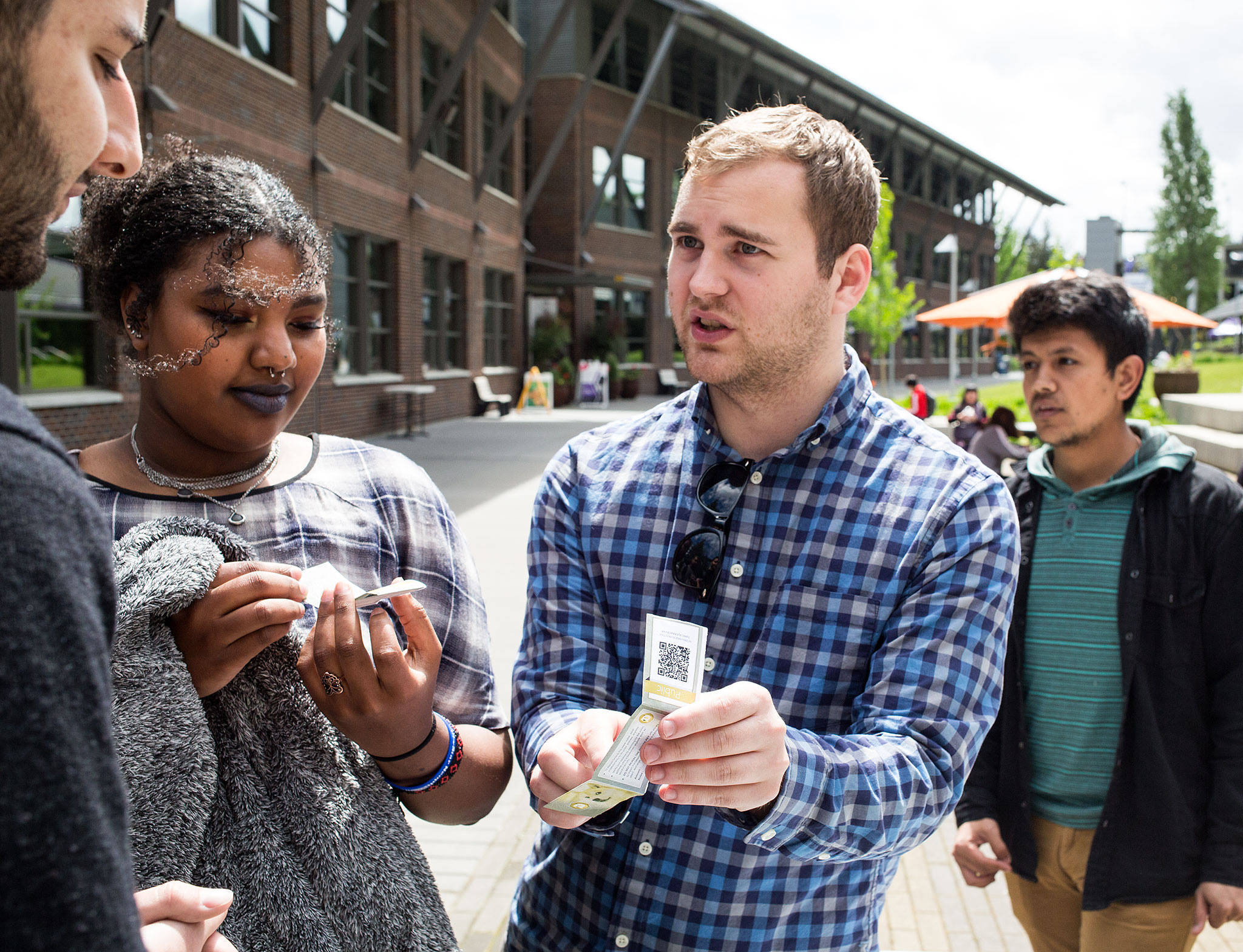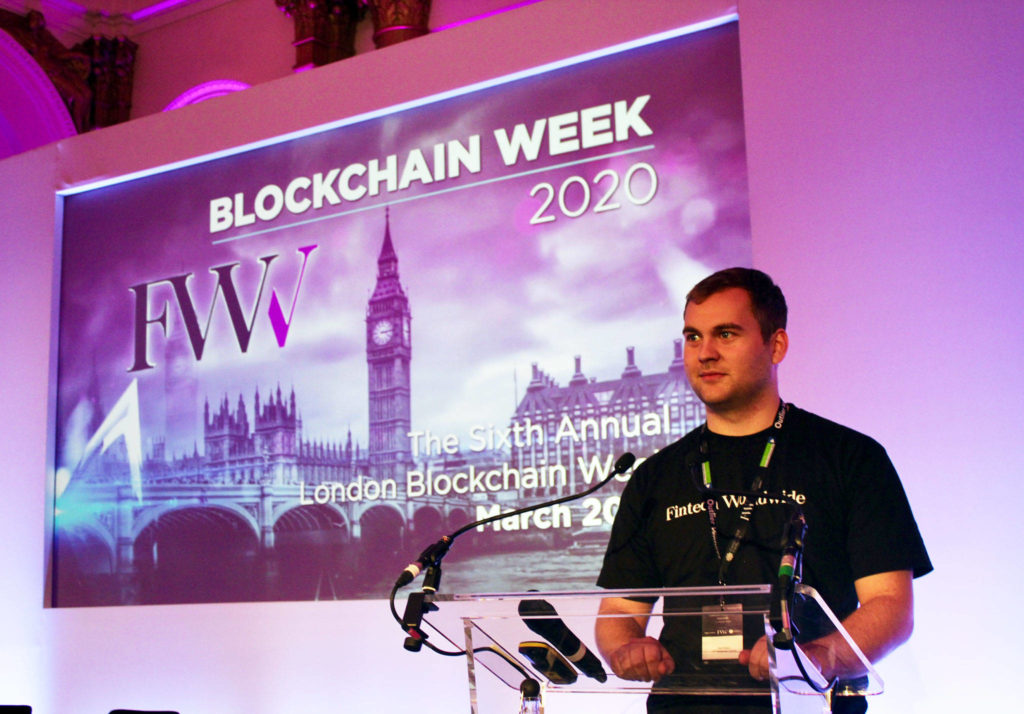BOTHELL — Zachary Nelson first bought Bitcoin when it was $11 a coin, in 2011.
He was 14. He saved his lunch money to buy about $60 worth. He and some high school buddies from West Seattle also mined it on their laptops. They used it to buy things.
“We were outliers,” he said. “It was a niche hobbyist thing.”
Now he’s 23 and a Bitcoin is $60,000.
And Dogecoin, created by two software engineers in 2013 as a parody to Bitcoin, has skyrocketed 8,000% in recent months after it was fueled by Elon Musk, Snoop Dogg, Slim Jim snacks and the social media fervor by everyday people wanting a piece of the crypto action.
This joke coin with a meme of a yellow Shiba Inu dog is now a top-five traded cryptocurrency on the planet and worth over $50 billion.
What’s up with that?
Crypto, baby. Digital currency is no longer a cryptic secret or pocket change of geeky teens. It is bought and sold like an investment and spent like money. Use it to buy a Tesla, a condo in Portugal or, via an app, a latte at Starbucks. Crypto trading platform Coinbase last week went public on Wall Street. Like stocks, crypto uses a trading shorthand symbol: Bitcoin is BTC. Dogecoin is DOGE.
Just when you thought it couldn’t get any more weird, Tuesday is #DogeDay420, trending on Twitter and Reddit to celebrate Dogecoin and try to pump up the price.
The crypto market is worth trillions. It’s valued not by any bank or government but by those who use it, and it can be used globally. The under-30 set are the main users, but that’s changing as their parents aspire to be Bitcoin-aires, as well.
Nelson was featured in a 2018 Herald story about a crypto club he started his sophomore year at the University of Washington Bothell. It was on club fair day. Clubs set up tables in the campus courtyard to attract members. Many clubs had candy. Nelson had a bowl with little neatly folded pieces of paper with a dog meme — nothing to eat, just a QR code to scan for the mystery amount of prizes of varying amounts.
If you were there, you might want to check your backpack from three years ago.
Dogecoin, valued at half a penny per coin at the time of the club fair, was trading at around 40 cents late Monday afternoon.
Some of those little slips of paper are worth $3,850 as of this writing. The others are worth $2,310, $770, $231 and $77.
Nelson said he handed out about $20,000 in crypto at today’s rates.
“We gave them out to everyone who stopped by,” he said. “It was to get people to use the crypto.”
He had a big “Free Crypto” sign to lure passersby. He was at times practically begging people to take one and had to explain why.
“People back then were wary. If we put out a free crypto stand now, people would be like a mob rushing to come and get it,” he said. “Everyone now understands.”
Especially the Internal Revenue Service, which is going after the billions of untapped capital gains taxes. Crypto is front and center on the first page of this year’s tax return, telling filers they must claim virtual currency transactions.
Nelson, a 2020 UW Bothell graduate, did internships at several blockchain companies as a student. He works for OKCoin, a Coinbase-like crypto exchange based in San Francisco.
The UW Blockchain Society he started as a club on the Bothell campus has grown to 1,200 members across all three UW campuses. He is the club adviser and on the school’s alumni council.
Maria Lamarca Anderson, UW Bothell spokesperson, was at that club fair in 2018, and so was I. She has no idea what she did with that little slip she got from Nelson with the Dogecoin code that could be worth thousands. Same here.
Skeptics may regard crypto as some get-rich-quick (or poor) scheme. At its root it is a financial technology.
“When I talk with students, I cite Zachary as an example of a student who not only took full advantage of the many educational and extracurricular opportunities at UW Bothell, but also adapted them to meet his goals,” Anderson said. “I can’t wait to see where his informed initiative, enthusiasm and kindness take him in his career.”
Nelson credits the school with being ahead of its time in offering the educational building blocks.
Crypto is built on blockchain technology. Blockchain is just a chain of blocks that hold data and are linked to each other. It’s a public database that is self-governing, eliminating the need for a central bank or authority to mint and manage a currency, with transactions a fraction of the cost.
Somehow — don’t ask me how — it all translates into dollar signs in real moolah.
According to Benzinga.com, $1,000 invested in Bitcoin in 2016 now would be worth $148,194. A grand plunked into Dogecoin would be worth over $1 million.
In that sense, wild child Dogecoin has surpassed big daddy Bitcoin.
There are dozens more cryptos, with names such as Polkadot, SushiSwap, PancakeSwap and OMG Network.
For real. (That’s a sentence, not the name of a crypto. At least not yet.)
“I have a ton of different crypto,” said Nelson, who also has holdings in traditional stocks, as well. “It’s like a gold rush. It’s new and exciting and everyone wants to be part of it.”
Otherwise known as FOMO: Fear of missing out.
Crypto is extremely volatile, which is why many non-crypto people prefer JOMO: Joy of missing out.
Trading is gambling. Bet only what you can afford to lose.
“When it doesn’t pan out immediately, there is a lot of fear and doubt about what it can do,” Nelson said. “People who really cared doubled down, put their heads down.”
Otherwise known as HODL: Hold on for dear life.
“I always knew it would work and could see how it was valuable,” Nelson said.
Did he make a lot of money?
“Yes.”
Could he retire?
“I feel like I’d be really bored.”
His home base, when not traveling for work, is a north King County rental house with three roommates.
“I joke about it, but I would like to have my own island someday,” he said. “I should have the island by 30.”
It’s not too late for us oldsters. Nelson does free talks on “Bitcoin and blockchain 101 for folks over 55.”
His mom is a convert.
“My mom is super-happy right now. I got her to buy $10,000 of Bitcoin when it was at $8,500,” he said. “The rest of my family thought I was crazy or a scam or something, but they are slowly coming around. She regretted not putting money in when it was $11.”
Just like many people are regretting not putting $11 into Dogecoin when it went for one-zillionth of a cent.
Have you dabbled or dove into cryptocurrency? Let’s talk for a story. Contact Andrea Brown: abrown@heraldnet.com; 425-339-3443. Twitter @reporterbrown
Talk to us
> Give us your news tips.
> Send us a letter to the editor.
> More Herald contact information.


























